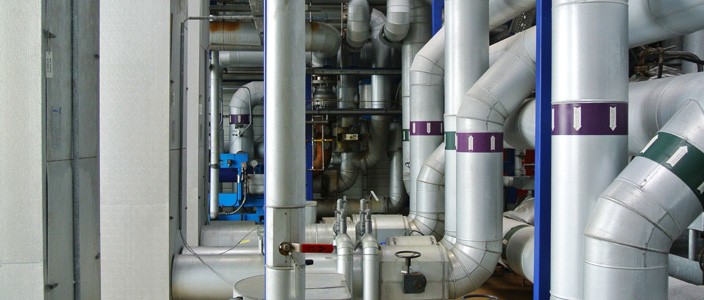Why RHC?
About half of the energy used in Europe is used to heat and cool our homes, offices and businesses. Around 72% of the gas used in Europe, much of which is imported, is for heating buildings and industrial processes. Gas prices are unstable and concerns are growing about both security, and escalating costs for citizens and businesses.
Despite this, heating and cooling, in particular renewable heating and cooling, has remained overlooked in public policy and public life.
Nevertheless, renewable heating technologies have progressed and are now able to play a large role in Europe’s energy mix, with significant economic and social benefits. In fact, covering 25% of the heat demand with renewables in 2020, could save the EU €21.8 bn annually on fuel imports compared to 2012.
To make this happen, there needs to be a greater understanding of the real costs of heating and cooling, more information and support for national and local authorities which are establishing administrative frameworks, and more information about the decision making factors of energy consumers.
What is FROnT?
Click here to view a presentation of the FROnT project.
Download a summary of the FROnT project and its results ES DE NL PL PT
The project aims at promoting a level playing field for Renewable Heating and Cooling (RHC) in Europe and to develop both strategies for RHC deployment, and improved understanding of the costs of RHC vs fossil fuel use. It analyses both existing support schemes and end user decision factors, in order to help establish strategic policy priorities for RES-H&C.
It will help establish a framework for more efficient and effective support schemes, and enhance clear and transparent communication with European consumers.
The work involves stakeholders from industry and public authorities from several EU members states including ES, PT, UK, PL, NL and AT. It is led by a consortium gathering representatives from industry and national energy agencies, assisted by partners providing specific expertise. The partners will assess recent and innovative support mechanisms to identify key success factors regarding designing, setting up, and operating integrated support schemes for RHC, based on the value of the energy produced and involving different applications (residential, non-residential and industry).
Results
- To promote the implementation, at national and European level, of strategic policy priorities that can contribute to efficiently and cost-effectively implementing the NREAPs. The consortium will identify and propose strategic policy priorities aimed at exploring the potential of RHC in Europe until 2020, taking into account market conditions, technological potential, legislative and regulatory framework and policy measures that will assist and/or flank support and incentive schemes for RHC systems.
- To facilitate the setting-up of improved and sustainable RHC integrated support schemes, stressing the value of the energy provided. This is done by means of a structured dialogue between the RHC industry, energy agencies and other experts, the building of a better & common understanding of the RHC sector and its main challenges, and the identification of key success factors on the design, implementation, operation and monitoring of support schemes dedicated to RHC and maximising results targeting end-user’s key decision factors.
- To support a better insight of the value of the energy supplied by RHC systems, promoting transparency and clarity for end-users and other stakeholders. Support schemes which take into account the value of the energy produced will be designed. This will constitute a reliable basis for energy production value estimates that can provide objective criteria for legislation and support schemes across Europe. Likewise, as assessment of Levelised costs of heating and cooling will be performed.
- To devise a common methodology for estimating the value of energy supplied by RHC systems and an assessment of Levelised costs for heating and cooling (renewable and conventional). Through an analysis of relevant factors for the determination of costs of heating and cooling, such as climatic or geological conditions, demand profiles, system performance, etc., and a well-established consultation process, a clear and simple commonly agreed calculation method will be developed.
All project findings can be found in the tools and publications sections of the website.
Project Milestones
See What the FROnT project is currently working on.
The project runs from 01/04/14 until 01/10/16
| 2014 | 2015 | 2016 | |||||||||||||||||||||||||||||||
| Integrated support schemes for RHC | Identification of key success factors | ||||||||||||||||||||||||||||||||
| Validation of results | |||||||||||||||||||||||||||||||||
| Establishing Common approaches | |||||||||||||||||||||||||||||||||
| Estimating RHC energy costs | Defining methodology to calculate RHC energy costs | ||||||||||||||||||||||||||||||||
| Consultation | |||||||||||||||||||||||||||||||||
| Approval of methodology | |||||||||||||||||||||||||||||||||
| Developing guidelines and recommendations | |||||||||||||||||||||||||||||||||
| Levelised costs of heating and cooling | |||||||||||||||||||||||||||||||||
| Market facilitators | National surveys | ||||||||||||||||||||||||||||||||
| Development of end-user centred tools | |||||||||||||||||||||||||||||||||
| Recommendations on promoting transparency on energy costs | |||||||||||||||||||||||||||||||||
| Strategic policy priorities for RHC | Assessment of Market outlook, business models & policy instruments | ||||||||||||||||||||||||||||||||
| Establish Strategic Policy priorities | |||||||||||||||||||||||||||||||||
| Events for policy makers | |||||||||||||||||||||||||||||||||
| Consultation and communication activities | Consultation activities | ||||||||||||||||||||||||||||||||
| National capacity building at national level | |||||||||||||||||||||||||||||||||
| Collation of project results | |||||||||||||||||||||||||||||||||





